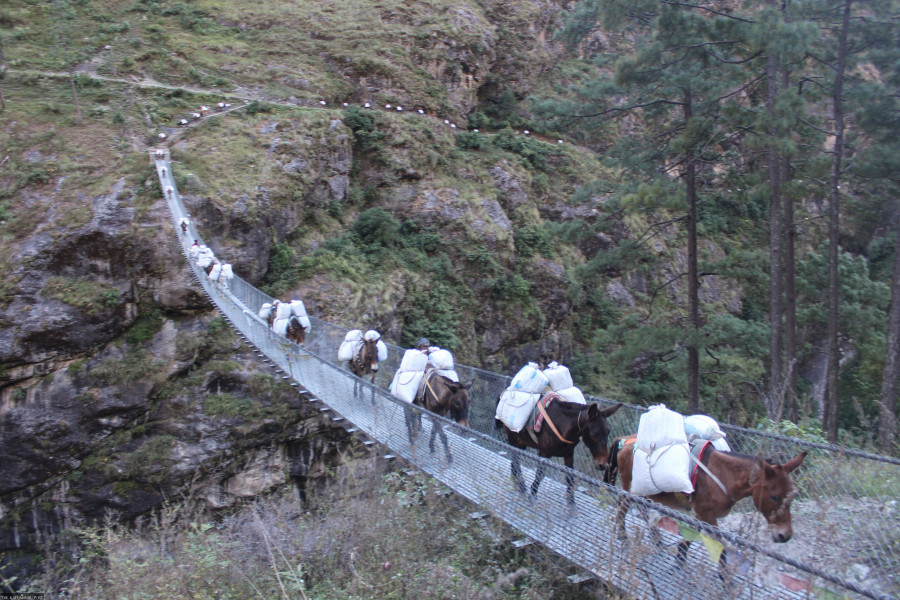Editorial
Waiting for inspiration
Unless our politicians realise the plight of the ordinary people through their suffering, nothing fruitful can be expected.
It is hard to believe that Nepali administrators still haven’t grasped the essentials of development. The transport network is an essential element in facilitating the movement of people and products. And this is one area where Nepal needs to focus its attention. What is necessary is an integrated transport network that will connect rural areas to the cities. In other words, we need to focus on connecting rural produce to markets in the city. Doing so will likely spur economic activity, and accessibility alone will soothe many of the concerns troubling the rural belt; from unemployment and health to education, all have their fates interweaved with improved connectivity.
A report in the Post highlighted one such issue related to connectivity; villagers in north Gorkha rely on mules to bring in essential commodities. While the Tarai region boasts of accessibility to an acceptable degree, towns and villages in the hills have been largely ignored despite political representatives from the hills having an overwhelming presence in both houses of Parliament. What do these representatives prioritise? After more than 30 years of unfettered democratic exercise, the politicians still haven’t prioritised development programmes wholeheartedly.
We are often quick to point out the exodus of youth from the villages searching for employment not just to the towns and cities in Nepal but beyond. While the country relies on the remittances sent by migrants for foreign exchange, the politicians have forgotten their part of the bargain in ensuring sound development. If only we had concrete plans to retain the youth and employ their skills in aiding Nepal’s development; instead, people have to make do by relying on empty promises, and at the same time, make preparations for sustenance.
Nobody anticipated the throttling effects the pandemic would have on the economy. And because of over-reliance on an import-based economy, policymakers have suddenly woken up to an unanticipated economic crisis which has precipitated knee-jerk reactions in tackling the dwindling foreign exchange reserves. It is arguable if the import ban will alleviate much of the economic problems; perhaps the situation would not be as grave if policymakers had focused on increasing productivity and relying on earnings through exports.
But instead, what we got during the pandemic was something unimaginable. Due to unfriendly policies, local farmers’ produce went to waste as they rotted in the fields for lack of market. To add to their distress, they had to witness the passage of up to 20 produce-laden trucks a day from India heading straight to market. These aren’t complex policy issues, and Nepal doesn’t need much to turn this plightful situation around. Yet, politicians show no such initiative in making simple decisions. Unless our politicians realise the plight of the ordinary people through their suffering, perhaps nothing fruitful can be expected of them.




 13.12°C Kathmandu
13.12°C Kathmandu














